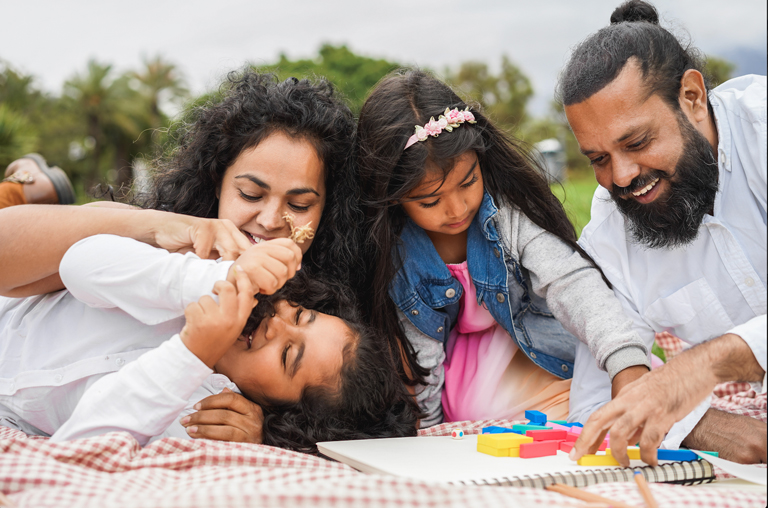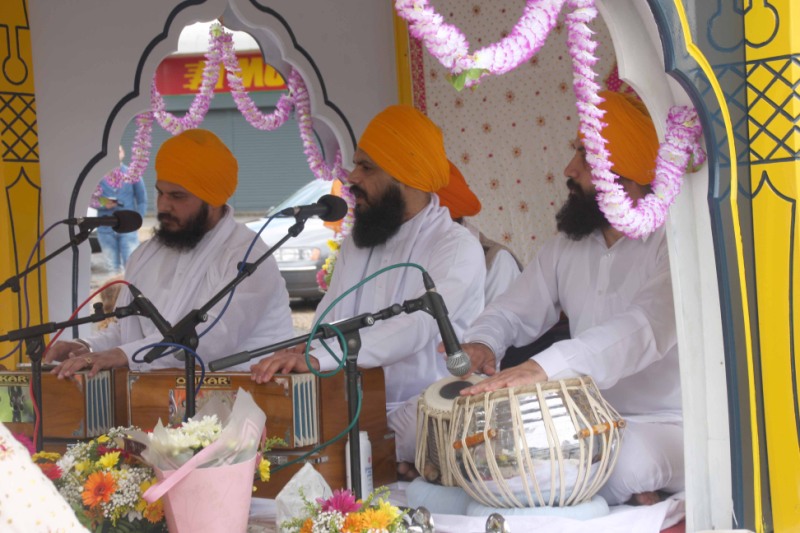Sikh Education
We provide a range of classes from Punjabi language to Kirtan and music lesson. Browse our list of classes below.

Punjabi Language Classes
RSR have been running classes for all since the 1980’s and has been led by volunteers for more than 40 years. Classes are currently held at Maiden Earleigh School on Fridays at 18:30 during school term time. We teach children from age 5 to 15 up to GCSE level. Please contact the school lead sevadars for more information

School Visits
RSR entertains many schools and other visits at its premises every year to help them teach their pupils Sikhism as part of their curriculum. This involves some presentations and practical processes at a gurdwara and its rituals. RSR also visit schools to present lectures. RSR also run presentations remotely using the technologies available
Sikhism is a monotheistic faith and beliefs that originated in the Punjab region of larger India (before Pakistan was formed) by the birth of Guru Nanak Dev Ji in 1469 (Nankana Saheb), then through the teachings of 9 successive Sikh Gurus and then passing over to eternal teachings of Sri Guru Granth Saheb Ji, by the 10th Sri Guru Gobind Singh Ji, who also created Sikh religion in April 1699 by baptising the five beloved ones and then Himself.
After baptism (Amrit Sanchar Ceremony) All Sikhs take a second name of Singh (meaning Lion for men) and Kaur (meaning princess for women) along with 5 Ks.
Sikhism emphasises the pursuit of spiritual enlightenment through the practice of meditation, selfless service, and adherence to the teachings of the Gurus, as recorded in the holy scriptures. Baptised Sikhs must also follow the code of conduct written in Sikh Rehat Maryada. Key three tenets are Remembering the Almighty, Honest Living and Sharing with those n need.
Guru Granth Sahib ji, which is always placed at the alter/throne as if a top king, in the gurdwaras, and the messages are for mankind/humanity to observe, not just Sikhs. The starting scripture and end paragraphs have no author indication that they are from Almighty Himself.
At the core of Sikhism is the belief in Oneness, referred to as “Ik Onkar” the symbol in the header.
Sikhs have been given full access to all scriptures indicating complete individual freedom.
Sikhism rejects the caste system, idol worship, and rituals that were prevalent in the society at the time of its founding. It promotes the principles of equality, social justice, and selfless service to others.
The external symbols of Sikhism include the uncut hair covered by a turban for men (usually), wearing of the Five Ks (Kesh, Kangha, Kara, Kachera, and Kirpan), and the observance of certain dietary restrictions.
The Sikh community gathers in a Gurdwara (Sikh place of worship) to participate in congregational prayers and listen to the recitation of hymns from the Guru Granth Sahib ji and of course the world class community kitchen/langar.
Sikhism promotes the concept of “Sarbat da Bhala,” which means the well-being of all Species. Sikhs are encouraged to contribute positively to society and engage in selfless service, including voluntary community work, charitable activities, and helping those in need.

Kiddie Sangat
Younger children activity teaching through interactive methods, Sikhi cultures, stories, gurus, rituals, etc. Fortnightly or as suitable for children aged 4-10. Children attend with parent/s This is a great introduction to Sikhi from an early age.

Kirtan & Indian Instrument Lessons
Sikhism encourages the full and competent musical development of its members, no matter what age. RSR run harmonium, tabla and other instrument teaching classes and practice singing the Shabads (hymns) for Sri Guru Granth Saheb Ji. All ages are welcome. Students usually bring their own instruments. RSR often provide opportunities to practice their achievements on stage when necessary, and learn to a recognised Diploma standard

